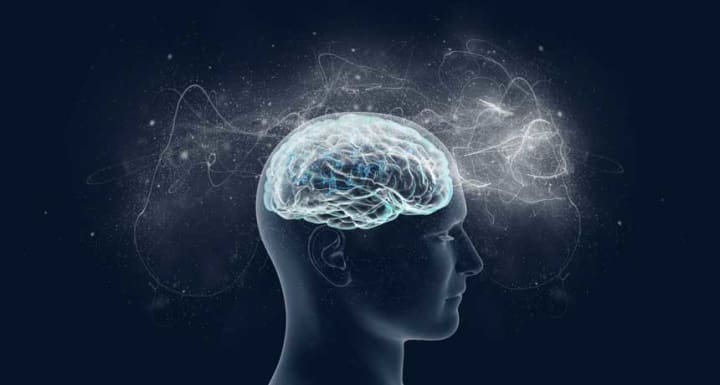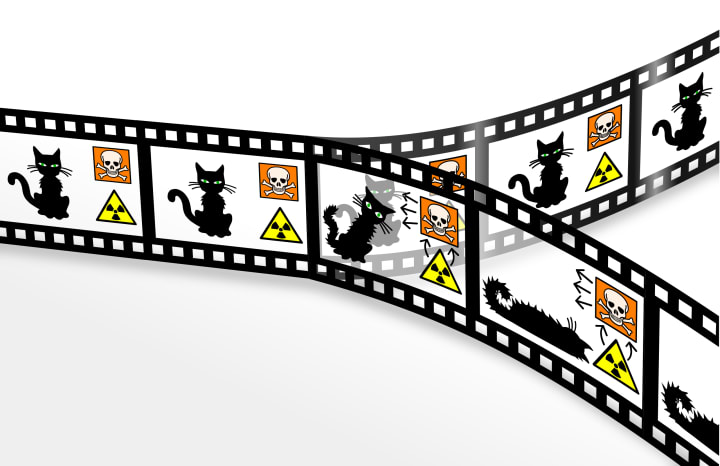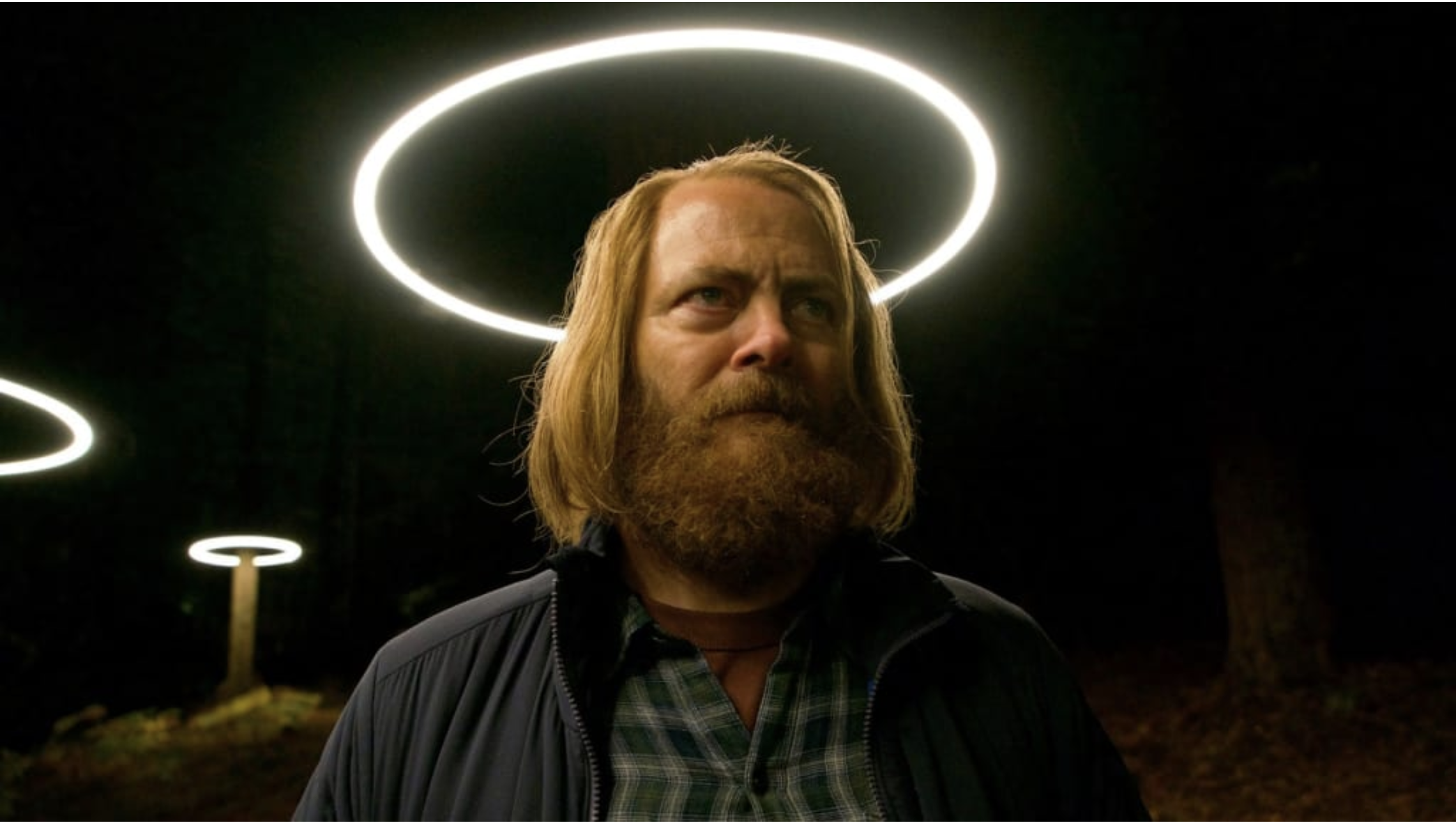Alex Garland’s new series provides an engaging insight into determinism, big data and free will. But what exactly is the physics it’s dealing with?
*WARNING: Spoilers ahead*
Devs involves a Quantum Computing company called Amaya. “Devs” is Amaya’s top-secret development project researching determinism and takes technological possibilities to a whole new level. The show follows Software Engineer Lily Chan (Sonoya Mizuno) who believes her employer is responsible for the disappearance of her boyfriend and co-worker, Sergei (Karl Glusman).
The Devs project is based mainly on the principle of determinism. This states that everything that happens is based on cause and effect, eroding the notion of free will. Therefore, with a computer powerful enough and with enough data, you can stretch this right down to the quantum level and accurately predict the future and recreate the past. This unravels every single decision making process such as predicting which book you’d like to read before you’ve even decided based on previous decisions seconds before. There is no such thing as random events. Essentially, data now has the ability to access and contain the complexity of human lines within lines of code. Brain hurting yet? Here’s more about the physics explained in the show:
Quantum computers

Although quantum computers sound futuristic and sci-fi, they exist already and are having a huge impact in the world of technology. For a regular computer, information is made up of combinations of ‘bits’: 1’s and 0’s. This however, is not how nature really works and a lot of reality relies on uncertainty rather than two definite states.
Quantum computers work on the principle of superposition. Information now is made up of ‘qubits’ which can exist in a superposition of 1 and 0 at the same time. Qubits therefore allow for uncertainty. When you flip a coin, you don’t know whether it’s heads or tails until you ‘measure’ it i.e. stop the coin. Whilst it’s spinning, it could be either, which is the type of state a qubit can hold and what makes quantum computers so powerful.
Computing power therefore improves exponentially as a result, which considering what they’re trying to achieve in Devs, makes perfect sense to use.
Von Neumann–Wigner interpretation

The Von Neumann-Wigner interpretation of quantum mechanics is dismissed vehemently by Katie in a physics lecture in Episode 5, but what actually is it? And why would she be so against it?
In quantum mechanics, a measurement (E.g. heads or tails) is obtained by the collapse of a wave function. A wave function mathematically describes the wave characteristics of a particle and its value at a given point of space and time is the probability of the particle being there.
This interpretation states that this collapse of the wave function is due to an observers consciousness. The Physics professor describes Young’s double slit experiment where a particle is seen to go through both slits simultaneously according to the interference pattern on the screen, however when observed, goes through just one slit as expected of a classical particle. This ‘observation’ is the collapse of the wave function, which according to this theory happens due to consciousness.
This approach could imply that humans are somehow special in our place in the universe, bordering on religious belief. Katie is an incredibly logical character with no patience for emotional reasoning. This theory thus appears to her ridiculous and she finds it offensive that it’s placed in the mathematics of quantum mechanics and labelling it ‘dualist bullshit’ (dualism is believing both physical and spiritual realities exist.)
Everett’s “Many Worlds” Interpretation

The brilliant mathematician Hugh Everett III’s interpretation is eventually what leads to the success of Devs following Lyndon’s breakthrough in Episode 4. As seen from how quantum computers work, quantum mechanics and the macroscopic world of everyday life work very differently. Therefore, how and why does our unique experiences emerge from the multiplicities of alternatives available in the superposed quantum world?
This concept of reality implies that the entire universe is described by a gigantic wave function that contains within it all possible realities and therefore no collapse. Every reality is as real as each other. For example, the famous “Schrödinger’s cat” paradox where a cat is both dead and alive in a box before you open and observe into it can be seen from this point of view. The cat is both alive and dead, even before the box is opened, but the “alive” and “dead” cats are now in different branches of the universe, both of which are equally real but which do not interact with each other. When a measurement is made, the universe splits, creating distinct realities for each possible outcome right down to the quantum level meaning an infinite number of possibilities and therefore universes.
In the show, Forest rejects the Everett interpretation being applied to Devs leading to Lyndon’s firing. Since he’s using Devs to connect to his deceased wife and daughter, the idea that his family are alive in an alternate reality rather than one that he is in is far too painful to believe. He wants to reconnect with his exact same daughter, right down to every hair on her head.
At the end of the series, we learn Devs is actually called Deus, Latin for ‘God’ since the project is succeeding to control reality itself which only a higher power is believed to do. You’re left with thinking about your own existence and how much control you actually have over it. In a time where we depend on our tech products, and we hand over far more personal data that any of us are comfortable with to the tech giants which dictate our lives through algorithms and data it makes you wonder – how much free will do we really have?



